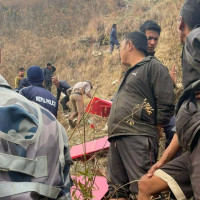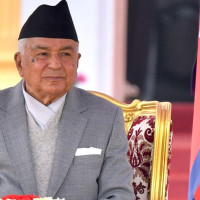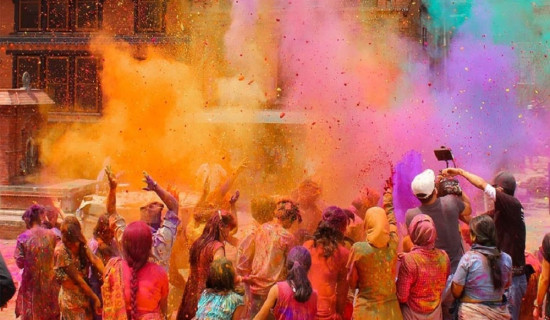- Tuesday, 3 March 2026
Nepal At Make Or Break Crossroads
On March 5, 2026, Nepal will hold yet another election, but to call it ‘just another’, however, would be a disservice to the critical moment we stand in. Every election in our history has carried significance, but this one comes at a time when the nation has been shaken to its core by the events of September 8 and 9. It is no longer about which party wins or which alliance outnumbers the other. It is about whether Nepal will have the strength to break free from a cycle of betrayal and stagnation, or whether it will allow the same old faces, the same corrupt patterns to repeat.
History reminds us how fragile democracy can be when neglected. Since the restoration of democracy in 1990, Nepal has had several elections, each promising reform and stability, but too often ending in fragmentation. The first parliamentary election of 1959, led by Bisheshwar Prasad Koirala, was undone within 18 months when King Mahendra dissolved Parliament and imposed the Panchayat system for three decades. When democracy was restored in 1990, it soon faltered under factional feuds, mid-term polls and eventually, the Maoist insurgency.
Constant struggle
The people rose again in 2006, dismantling the monarchy and declaring a republic, but even then, the first Constituent Assembly failed to deliver a constitution. Only the second Assembly, after years of turmoil, produced the federal charter in 2015. This journey has never been one of steady progress but of constant struggle, where ordinary citizens have had to fight time and again to reclaim what was once promised to them.
And yet, what sets the present apart is not only the turbulence of the past but the nature of the movement that erupted on September 8. Unlike previous uprisings that rallied under party flags, this wave was led by independent youths who claimed no political banner, no allegiance, no hidden agenda except to demand that leaders finally be held accountable to the people they claim to serve and protect. That clarity of purpose has shaken Nepal’s politics in ways no past protest ever has. And now, that very clarity must be carried into the voting booth.
This is why the upcoming election matters more than most. It is the chance for us to decide whether our future will be defined by capable, selfless and accountable leaders or by those who have time and again failed the nation. If there is one truth history has taught us, it is that silence breeds regression. For too long, political engagement has been left to party loyalists and elites while many, especially young people, choose cynicism or disinterest. However, that luxury no longer exists. Politics is no longer just the business of older generations. Even those who claim no interest in political affairs must recognise that politics is already interested in them. It shapes the schools they attend, the jobs they compete for, the healthcare they can access, and the freedoms they enjoy.
For the youths, especially now, voting is more than just a constitutional right; it is an opportunity to take ownership of their future, to shape a system that can keep them invested at home rather than seeking opportunities abroad, and to create conditions that might perhaps even draw back those who have left. Choosing not to vote does not make one neutral; it simply hands power to those who thrive on indifference. In this critical period, if the youths do not step up, if they do not pour their outrage onto the ballots, then the old order will return and all the sacrifices, the loss of life and destruction of property, will have been in vain.
Stakes
Hence, the stakes of this election cannot be overstated. Every eligible citizen now has the chance to participate and honour the sacrifice of those lost in the protest. Previously, the law did not allow new voter registration once an election date was announced, which prevented many eligible citizens, especially young people who had recently reached voting age, from being added to the voter list. The president’s new ordinance, allowing first-time voters to register ahead of the March 5 election, is a significant step forward. This is an infallible opportunity for us to ensure that governance serves all its citizens, not just the privileged few.
This election is our chance to prove that a generation without political banners is still powerful enough to chart a nation’s course. The future will not wait to be handed to us—it will be decided by those who show up and make their votes count. And when history looks back to this moment, it should not remember another missed chance, but as a pivotal point where the citizens recognised their responsibility and set a new course for Nepal’s future.
(Koirala is a Bachelor's level student at St. Xavier's College, Maitighar.)
















